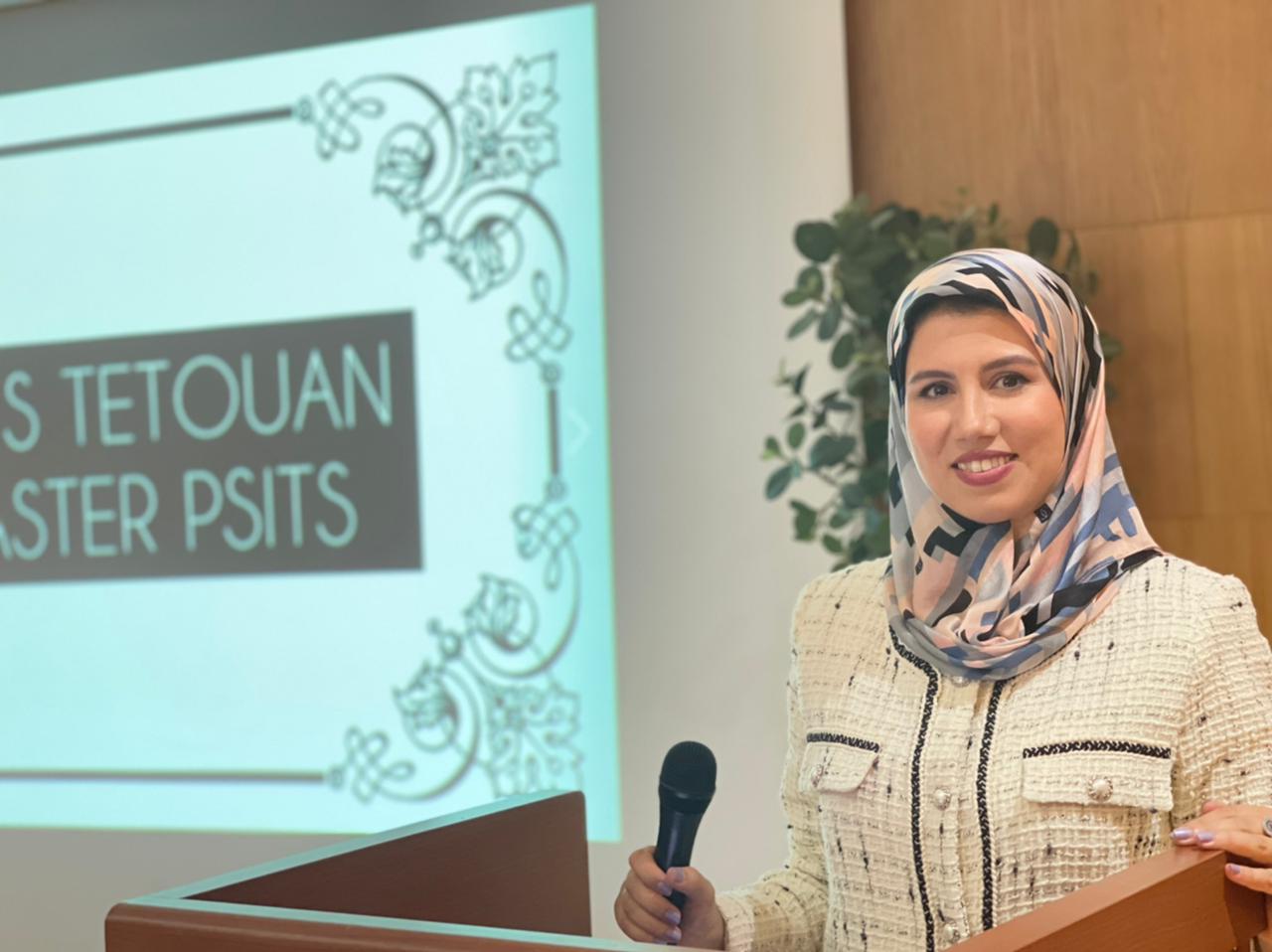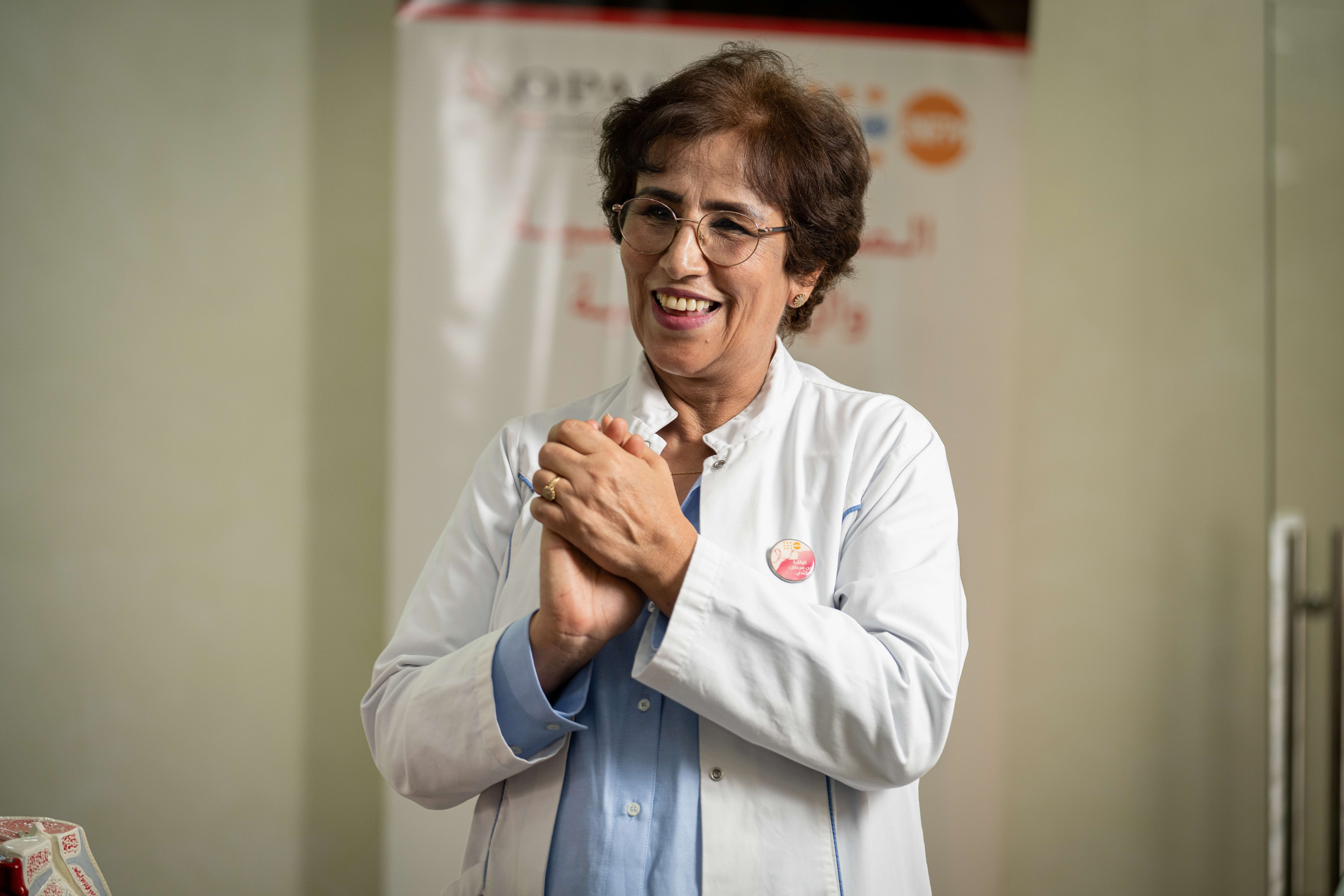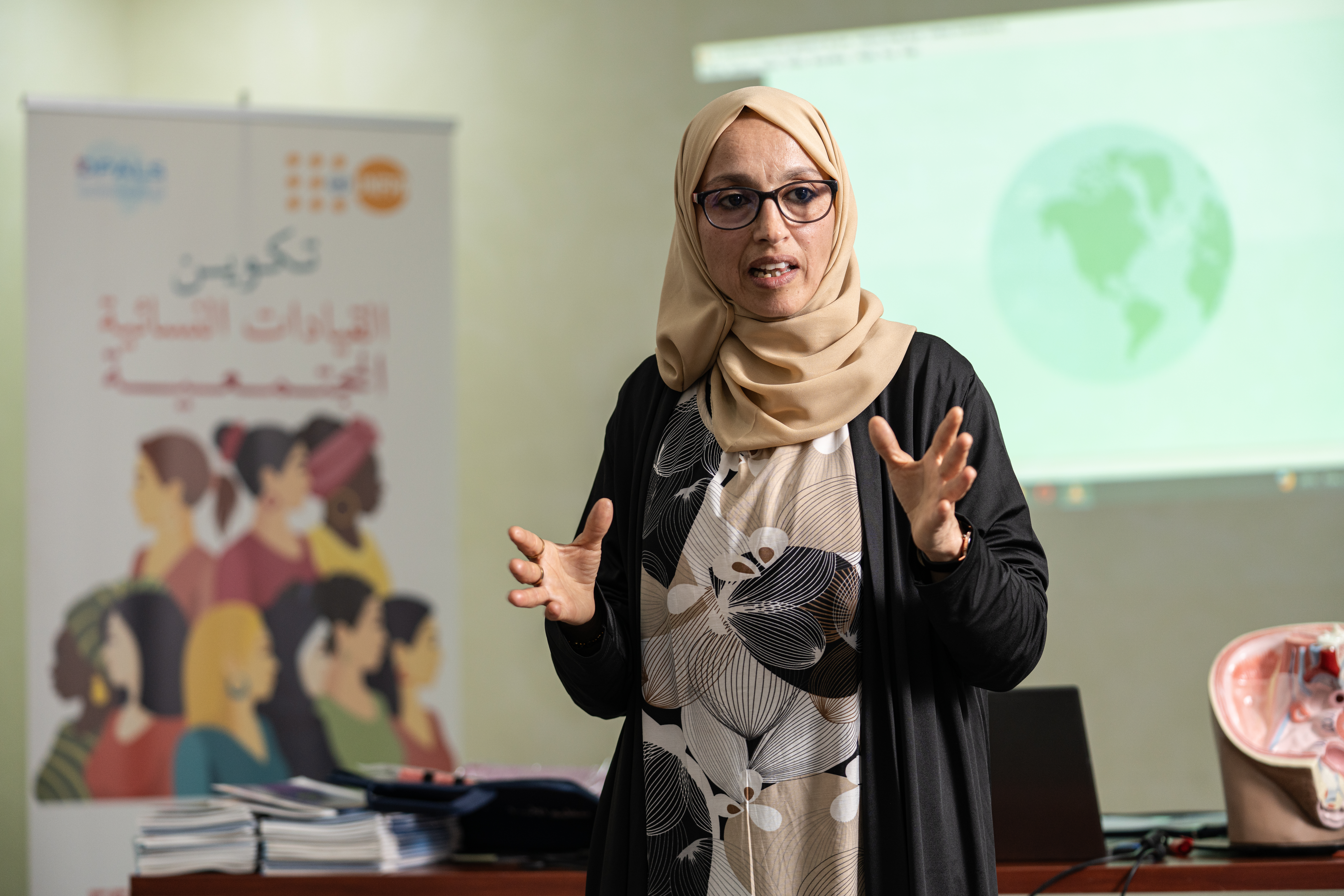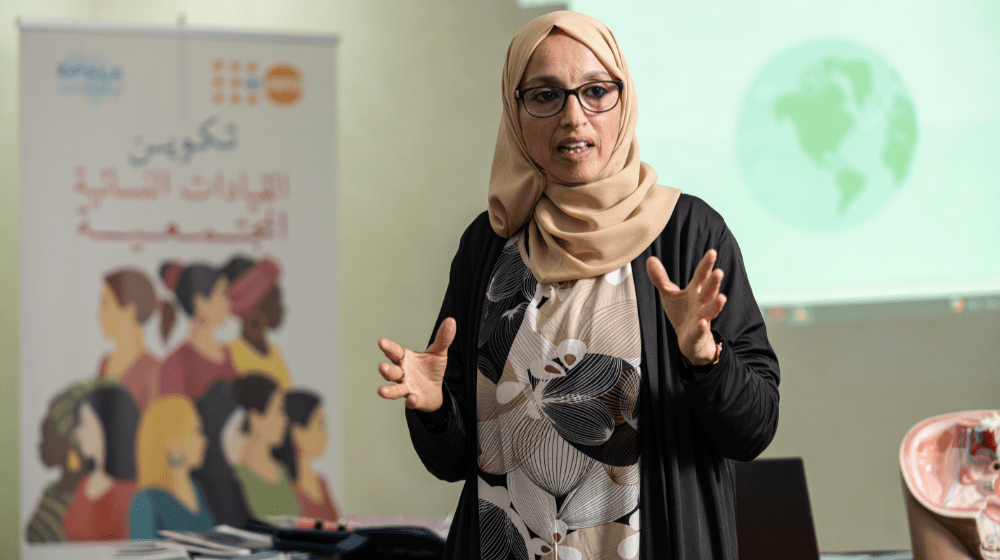“I don't know by what miracle I could cross that bridge,” says midwife Hajar, who recalls battling to reach a woman in labour in the midst of a powerful flood in Bni Hassan, Morocco.

“The roads were cut off. There was no electricity, and there was no way we could move a woman in labour across that little bridge, so I had to reach her to help her deliver at home.”
In remote areas, midwives are often the first and only point of contact with the healthcare system for many women and girls. Disasters make reaching them even harder.
Despite huge challenges, Hajar ensured that the birth occurred under the best possible conditions, using a UNFPA delivery kit to ensure the woman and her newborn survived.
Beyond childbirth
“This personal journey deepened my empathy. It allowed me to connect with people on a more intimate level,” says Hajar, who has now become a trainer for other midwives.
Through her own experience of childbirth, and through sharing personal stories, Hajar shows how shared understanding can go far beyond childbirth, to help women, girls and communities address a range of sexual and reproductive health issues throughout life.
Across Morocco, UNFPA works with midwives like Hajar and a range of partners to share information on sexual and reproductive health, family planning maternal health, menstrual hygiene, gender-based violence and other issues in communities with limited access to information.

“We bridge the gap between communities and the healthcare system, ensuring that the needs and perspectives of women and girls are considered in planning and delivery,” says midwife Khadija.
Midwives are also helping in the fight against violence against women and harmful practices like child marriage and female genital mutilation.

“I am happy to be an ambassador of reproductive health and am committed to sharing essential information on family planning, maternal care, cancer prevention, and the prevention of violence against women and girls.” Says Aicha, who participated in the first information workshop conducted in Laayayda, in Morocco’s northwest, with UNFPA support.
Wider impact
Morocco has made significant progress in reducing maternal mortality in recent years, with the maternal mortality rate now only slightly above the target of 70 deaths per 100,000 population that was set out in the Sustainable Development Goals to meet by 2030.
“Midwives have played a crucial role in Morocco's success in reducing maternal and infant mortality over the years, and UNFPA is proud to have played a key part in that since 1975.
Investing in midwives saves lives, strengthens communities and also brings much wider social and economic gains,“ says Marielle Sander, UNFPA Representative in Morocco.
A recent UNFPA study conducted in Morocco demonstrated that for every 1 USD invested in midwifery, there is a return of 16 USD in the country's Gross Domestic Product.


